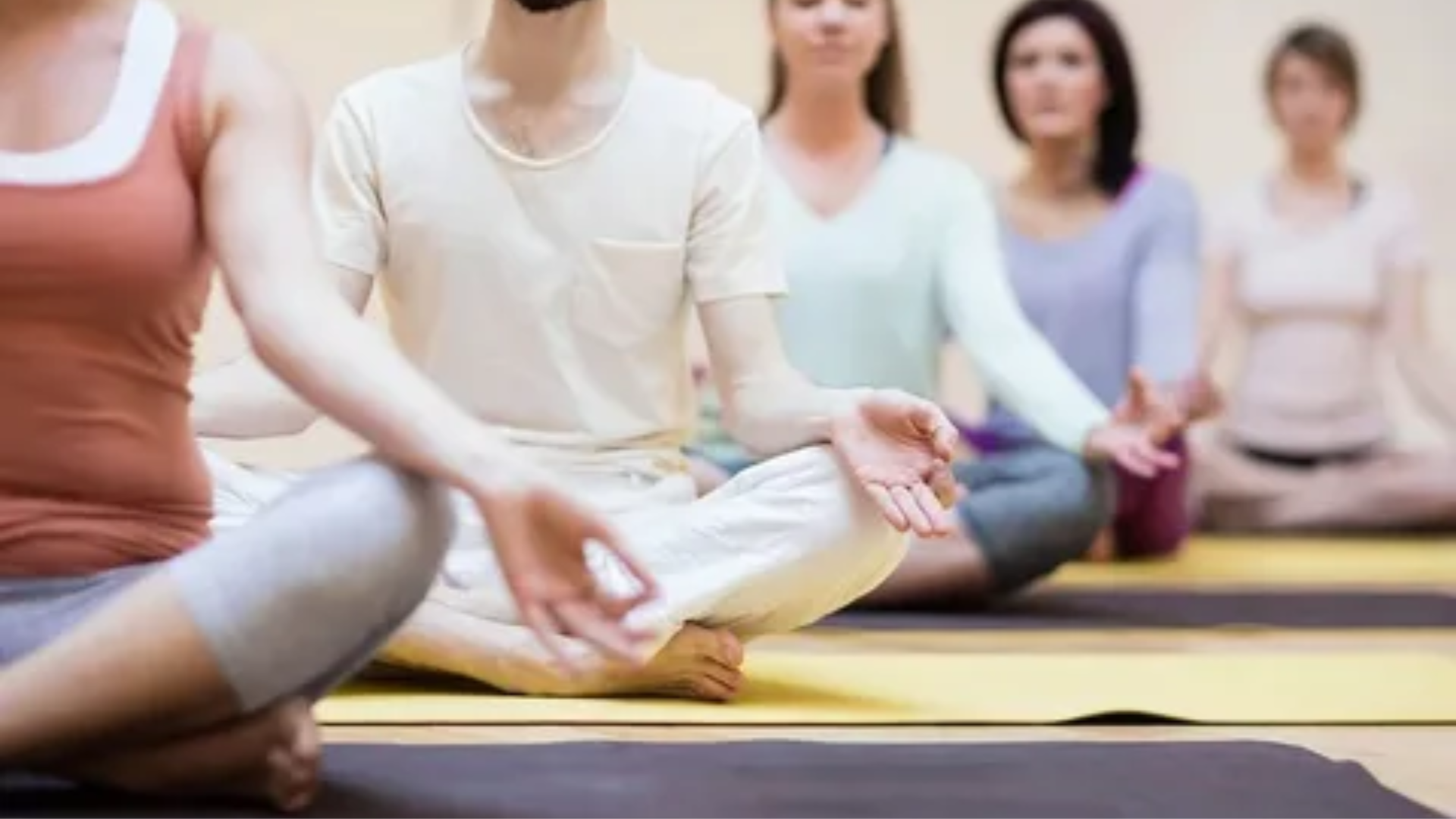Finding balance in life can feel like trying to juggle flaming swords while riding a unicycle—impressive if you can pull it off, but, let’s be honest, pretty risky. Mental and physical wellbeing are two sides of the same coin, and learning how to nurture both is the key to living a healthy, happy life. But let’s face it: it’s easy to get caught up in work, social media, or endless Netflix binging, and forget to take care of our mental and physical health. So, how do we maintain this delicate balance?
In this article, we’re going to walk you through some simple, actionable steps to take control of your mental and physical wellbeing. There’s no one-size-fits-all answer, but with the right habits and mindset, you can find a balance that works for you. And yes, there’s room for humor and some weird metaphors along the way.
Why Balance Matters: Mental vs. Physical Health
First, let’s talk about why balancing both mental and physical health is essential. When one is off, it’s like a bicycle with a flat tire—you’re not going anywhere fast, and it can be pretty frustrating.
Physical Health: It’s Not Just About the Gym
Taking care of your body is about more than just working out. It’s about fueling your body with nutritious food, keeping up with your sleep, and making time for relaxation. Physical health influences mental health in profound ways. You don’t need a six-pack to feel good (but, hey, if that’s your thing, go for it). A healthy body supports a sharp mind.
Mental Health: Because Your Brain Needs TLC, Too
Mental health is about more than avoiding stress (as if that were even possible in 2024). It’s about managing emotions, building resilience, and staying in touch with yourself. When you feel mentally strong, you’re better equipped to handle life’s curveballs—like, say, losing your keys while late for an important meeting. Mental health and physical health are deeply intertwined—when one suffers, so does the other.
Finding Your Own Balance: Where Do You Start?
Maintaining a balance that works for you isn’t about being perfect. It’s about being consistent and mindful in how you approach both your body and mind. Let’s break it down into manageable steps that you can start applying today (yes, even if you’re reading this while slouched on the couch with a bag of chips).
Step 1: Prioritize Sleep—It’s the Secret Sauce
We’ve all heard it a million times: “Sleep is important.” But how often do we ignore that advice in favor of late-night scrolling or working on that “urgent” project that could probably wait until tomorrow?
Why sleep matters:
- Mental Recharge: Your brain needs rest to process emotions and thoughts. Skimp on sleep, and you might feel like your brain is in a constant fog.
- Physical Recovery: Sleep is when your body heals itself, repairs muscles, and balances hormones.
How to Improve Your Sleep:
- Create a Routine: Try to go to bed and wake up at the same time every day (even on weekends—yikes, right?).
- Avoid Screens: The blue light from your phone messes with your body’s sleep signals. Try reading a book instead. Bonus: You’ll feel like a sophisticated adult.
- Create a Relaxing Environment: Keep your bedroom cool, dark, and quiet. If your neighbor’s dog has other ideas, consider earplugs or a white noise machine.
Step 2: Eat for Energy (Not for Emotional Comfort)
We’ve all had those days where the only thing that feels good is a bowl of ice cream or a slice of pizza. And hey, there’s nothing wrong with indulging in a treat from time to time. But your mental and physical health benefit greatly when you fuel your body with nutritious food.
What to eat for balanced wellbeing:
- Fruits and Vegetables: Think of them as the VIPs of your plate. They’re packed with vitamins, minerals, and antioxidants that support your physical and mental health.
- Protein: Helps build and repair muscle and boosts serotonin, the “feel-good” chemical in your brain.
- Healthy Fats: Avocados, nuts, and olive oil are good fats that promote brain health and hormone balance.
Quick and Healthy Meal Ideas:
- Breakfast: Greek yogurt with fresh fruit, chia seeds, and a drizzle of honey.
- Lunch: Grilled chicken or tofu salad with leafy greens, olive oil, and balsamic vinegar.
- Dinner: A hearty veggie stir-fry with brown rice and a sprinkle of sesame seeds.
Pro Tip: Hydrate! Water helps your body function properly and keeps your brain sharp. You might feel like a camel, but trust us—it’s worth it.
Step 3: Get Moving (No, You Don’t Have to Run a Marathon)
Okay, so let’s talk about exercise. For some, even the word “exercise” brings up flashbacks of high school gym class and that time you accidentally knocked over a volleyball net. But here’s the truth: physical activity doesn’t have to be intense to be beneficial. It’s about staying active and keeping your body moving in ways that feel good to you.
Benefits of exercise:
- Improves Mood: Exercise increases the release of endorphins, those feel-good chemicals that help reduce stress and improve your overall mood.
- Boosts Energy: Physical activity might feel tiring at first, but in the long run, it can help you feel more energized throughout the day.
- Improves Sleep: Yes, moving your body actually helps you sleep better at night.
Simple Ways to Stay Active:
- Take a Walk: Walking is a low-impact exercise that you can do anywhere, and it’s a great way to clear your mind.
- Try Yoga: If you’re into stretching (or just need an excuse to lie down on a mat), yoga is perfect for balancing mental and physical health.
- Dance Around: Who said exercise has to be serious? Put on your favorite playlist and just move to the music.
Step 4: Manage Stress—Because, Well, Life Happens
Let’s face it: life can be stressful. Deadlines, social obligations, and the occasional existential crisis are all part of the package. But how we deal with stress can make a huge difference in our mental and physical wellbeing.
How stress affects your body:
- Physical: Stress can cause headaches, muscle tension, and digestive issues.
- Mental: Chronic stress can lead to anxiety, depression, and difficulty concentrating.
Ways to Manage Stress:
- Practice Mindfulness: Mindfulness meditation can help you stay present and reduce anxiety. Start with just 5 minutes a day. If your mind wanders, don’t worry—that’s normal.
- Breathe Deeply: Take a few slow, deep breaths to calm your nervous system. This might seem too simple, but it’s surprisingly effective.
- Laugh: Seriously, laughter is a great stress-buster. Watch a funny video, tell a joke, or remember that time your friend accidentally wore mismatched shoes to an important meeting.
The Importance of Mental Health: Tending to Your Inner World
We spend so much time working on our physical health, but mental health is just as important. If your mind is in a constant state of chaos, it’s going to affect everything else.
Step 5: Cultivate a Positive Mindset
A positive mindset doesn’t mean ignoring life’s challenges—it’s about how you respond to them. When things get tough, a positive attitude can make it easier to bounce back.
How to Build a Positive Mindset:
- Practice Gratitude: Start your day by listing three things you’re grateful for. It might sound cheesy, but it works.
- Challenge Negative Thoughts: Next time you catch yourself thinking “I’m terrible at this,” challenge that thought with something more empowering, like “I can improve with practice.”
- Surround Yourself with Positivity: The people you spend time with can have a huge impact on your mental health. Try to spend time with people who lift you up.
Step 6: Seek Support When You Need It
Everyone needs help sometimes. Whether it’s talking to a friend or seeking professional guidance, don’t hesitate to ask for support when life feels overwhelming.
Ways to Seek Support:
- Talk to Friends and Family: A good conversation can work wonders for your mental health.
- See a Therapist: Therapy can help you work through stress, anxiety, and other mental health challenges.
- Join a Support Group: Sometimes, it’s helpful to talk to others who are going through the same thing.
Step 7: Know When to Unplug
In today’s hyper-connected world, it’s easy to get caught in the web of social media, work emails, and endless scrolling. But taking a break from screens can do wonders for your mental and physical health.
Benefits of Unplugging:
- Better Sleep: Reducing screen time before bed can help you fall asleep faster and sleep more soundly.
- Reduced Stress: Constantly checking your phone can contribute to stress and anxiety. A little time off can help reset your mind.
- More Time for Yourself: Taking breaks from technology gives you time to focus on hobbies, self-care, or simply enjoying life.

Conclusion: Achieving Balance Is a Lifelong Journey
Achieving balance between your mental and physical health is like trying to maintain a beautiful garden—it takes time, patience, and the occasional weed-pulling session. But with the right tools, mindset, and habits, you can cultivate a balanced, fulfilling life.
Remember, it’s not about perfection—it’s about progress. And hey, even if you trip over your own feet while trying to do yoga or eat an entire pizza, that’s okay. Life’s a journey, and balance isn’t a destination—it’s a practice.










Leave a Reply